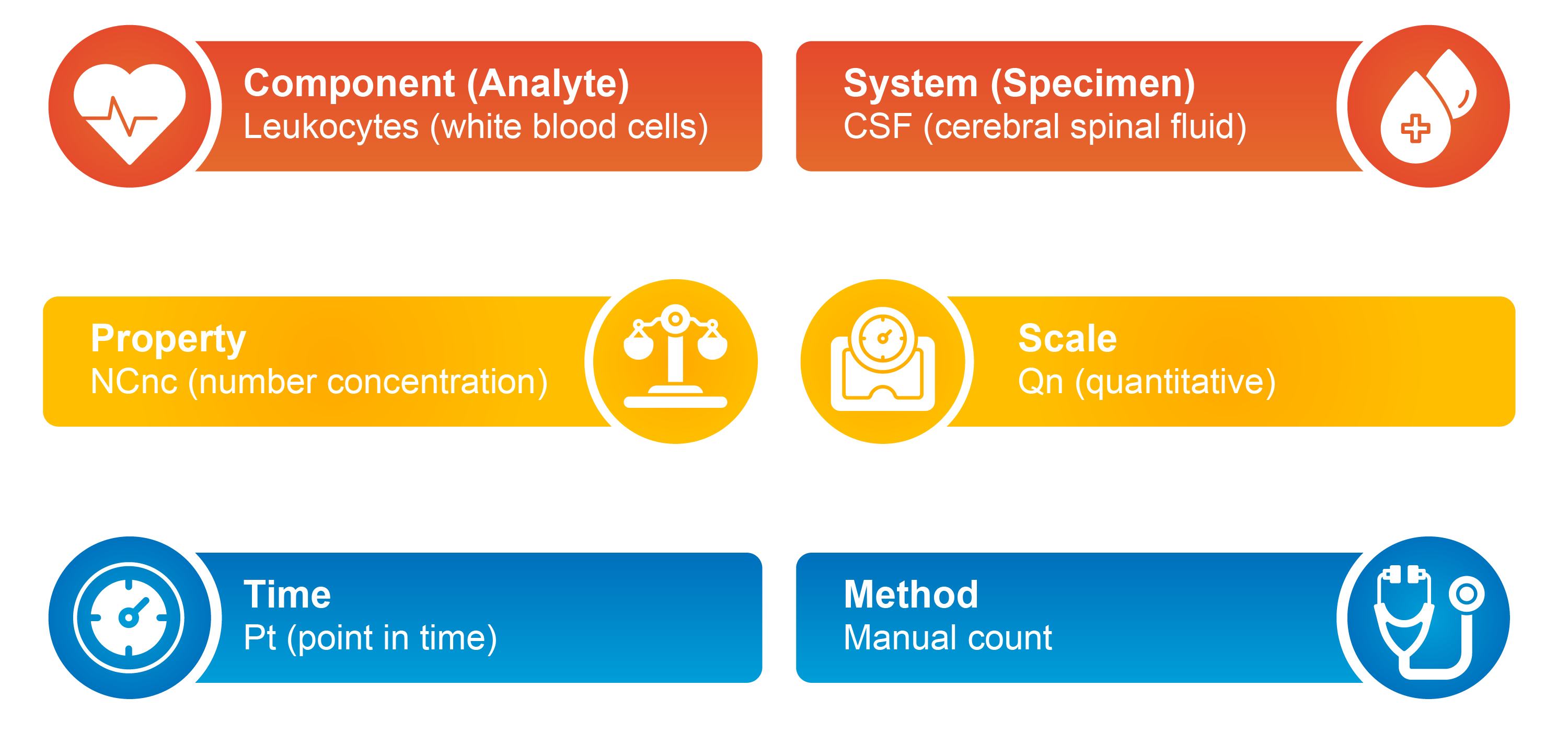2: Terminology Standards and Tools
LOINC

(Image Source: iStock Photos, andresr©)
LOINC (Logical Observation Identifiers Names and Codes) is a common language (set of identifiers, names, and codes) for identifying health measurements, observations, and documents.
Think of an observation as a question and the observation result value as an answer. LOINC codes represent the question for a test or measurement.
LOINC has two major divisions of content:
Laboratory tests
The lab tests are LOINC’s main application in the United States. The laboratory portion of LOINC covers anything that can be tested, measured, or observed about a specimen. It contains the usual categories of chemistry, hematology, serology, microbiology, and toxicology, as well as categories for cell counts, antibiotic susceptibilities, and more.
Clinical observations
The clinical and survey portion of LOINC covers anything that can be tested, measured, or observed about a patient without removing that specimen from them.
LOINC's goal is to create different codes for each test, measurement, or observation that has a clinically different meaning. To do that, LOINC codes distinguish a given observation (test ordered/reported, survey question, clinical document) across six dimensions that are called Parts.
- Component
- Property
- Time
- System
- Scale
- Method
This image is a breakdown of the LOINC parts for manual count of white blood cells in cerebral spinal fluid specimen, which is represented by LOINC code 806-0.
LOINC creates several different text labels (names) to represent each concept. LOINC calls the six-part formal name the Fully-Specified Name (FSN). They also create a more clinician-friendly display called the Long Common Name (LCN) and a Short Name that can be handy when you need a column header in a report.
A fully specified name in LOINC includes the following attributes:
Here are the names for LOINC code 806-0:
- Fully-Specified Name (FSN) - Leukocytes: NCnc: Pt: CSF: Qn: Manual count
- Long Common Name (LCN) - Leukocytes [#/volume] in Cerebral spinal fluid by Manual count
- Short Name - WBC # CSF Manual
LOINC was initiated in 1994 by Dr. Clem McDonald, then an investigator at Regenstrief Institute at the Indiana University School of Medicine, and now a Senior Investigator in the Computational Health Research Branch at the Lister Hill Center for Biomedical Communications at NLM. NLM helps fund LOINC development through the Regenstrief Institute.
